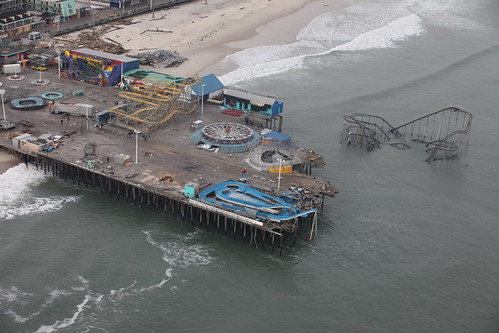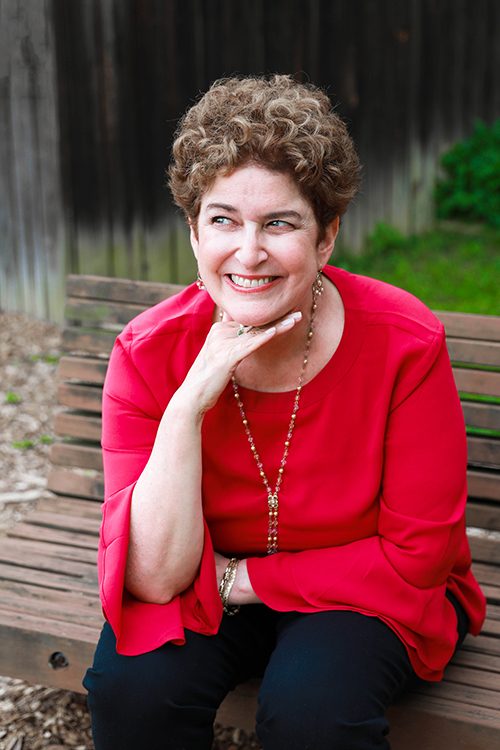The following is a post by my first guest blogger, Lisa Romeo. Lisa is a writer, author, teacher, and mentor to me. I've known Lisa since grade school. A few years ago, while browsing at Barnes & Noble, I picked up a copy of Oprah Winfrey's book "The Big Book of O." The book opened to a page profiling Lisa Romeo. I was mesmerized by her ability to write about subjects we silently think to ourselves. She won my admiration with her writing skills and rekindled the need for me to begin to write once more. Thank you, Lisa, for being my first guest blogger! Enjoy, everyone. Happy Thanksgiving to all.
"A change in the weather is sufficient to recreate the world and ourselves." ~ Marcel Proust
You are empowering yourself by saying no. By saying yes. By ignoring your age. By acting your age. By realizing you've had the power all along.
I had many ideas for this guest post, including all of the above. Writing that post was on my list of things to do the last week of October. Then, Hurricane Sandy slammed my state, and the idea of power took on a different meaning.
My home and neighborhood were suddenly and utterly powerless – eight days without heat, electricity, phones, or internet. It was annoying, of course, to scurry from friends' houses to cafes to find internet connections to keep my business going, to contend with extra clothing layers and defrosting food -- but only annoying, compared to losses others were dealt.
So we didn't complain (much) and carried on. Things would be back to normal soon, we reasoned. In the meantime, there were unexpected compensations – playing double solitaire by candlelight (with wine and real cards!), fireplace huddles (hot chocolate and the teenager reading ghost stories aloud), and the deep comfort of creating heat with my husband the old-fashioned way.
"Each of us makes his weather, determines the color of the skies in the emotional universe which he inhabits." – Bishop Fulton J. Sheen.
 Then, power was restored -- to the grid, the poles, my house; we cheered. And yet, for me, a certain vague sadness visited and lingered.
Then, power was restored -- to the grid, the poles, my house; we cheered. And yet, for me, a certain vague sadness visited and lingered.
I stood still over the next week when everyone was getting "back to normal" (the latest catchphrase around town). I didn't race to the supermarket and overfill a shopping cart, but I only picked up just enough for that day's meals each day.
I didn't track down and watch missed television episodes online but finished the novel I'd begun reading by flashlight. I did do every single bit of laundry – a girl has limits.
I'm no Pollyanna, but I have always found it interesting, rather than upsetting, to observe the rippling effects of a problematic situation, study it, and so instead of feeling powerfully back in control in the two weeks since the kitchen light flickered on again, I stood still. I tried to figure out what I had learned about power. It is this: feeling powerless, especially in mid-life, is simultaneously a motivator and a hurdle.
While power was unavailable, I always had two choices, every cold, dark, miserable day. I could do nothing while shivering in my cold, dark house. Do nothing and moan about the cost of food that perished on warm freezer shelves. Do nothing but cry about my son's damaged school, my ravaged Jersey Shore (the real one), and my husband's week without income – and show my teenage son that the way you get through a crisis is to feel sorry for yourself.
Or. I could do something. Empty the freezer, mop up the mess, buy ice, fill coolers, and toss whatever had to be used up onto the grill. (And realize I had the power to feed my family.)
I could switch on the boys' camping lantern, use the fireplace, light some candles, read my friend's novel, and edit my writing students' papers with a pencil. (Remember the simple and pure magic of holding the printed word in hand.)
I could accept the invitation of friends and relatives, work at their dining room tables, enjoy a meal together, and stay warm. (And realize not every kindness has to be immediately repaid.) I could fill the hot water bottle, put blankets over the drafty windows, wear two layers of pajamas, and sleep more tightly curled next to my husband than since we married 24 years ago. (And realize how wasteful we'd been with our heating dollars in the past.)
I could worry about when the trains would run to my son's school again or call parents I did not know and propose carpools. (And realize that, like I tell my son, most people are okay once you get past hello.)
Post-storm then, I had to ask – if I could find ways to be decisive in an inoperable power grid, what could I learn from how I reacted and acted during those eight days?
It is this: Always, we can change – the way we get things done, interact, and move through our days and world. I began to ask myself: if I can make changes when forced to, what else might I do?
What changes might I make now to move me closer to my goals, improve my household, and embrace my family?
Here's what: Our refrigerator and freezer are still 90 percent bare, on purpose. Here was an empowering opportunity to enact the sweeping change I had planned for two years but neglected to make in the way I selected and stocked food – including more organic and vegetarian choices.
So I'm taking my time, shopping in short trips that allow for label-reading, trying new stores, and taking back some of the power I had unwittingly handed over to lazy habit. I usually find that taking back some power in any area of one's life typically leads to other choices in other areas.
If I could do this, what else? During the power outage, we learned that we could sleep quite comfortably, though the thermostat read 50 degrees; the down comforter came out of storage earlier in the season, I wore pajamas instead of a sleeveless nightgown, filled an old-fashioned hot water bottle, and we rediscovered the center of our king-sized bed.
When resetting the electronic set-back thermostats (which had dipped to 63 degrees at night pre-storm), I suggested we dial them down even lower. Without distress, I knew we could swap a few more degrees to free up a few more dollars for our older son's college tuition bills.
"What it lies in our power to do, it lies in our power not to do." - Aristotle.
Pre-storm, I avoided working in nearby coffee shops because friends or acquaintances who might show up (or the friendly wait staff) would inevitably spark conversations, dampening my productivity.
Yet, I also struggled with the isolation of the freelancer's life. When the café was one of the few sources for connecting to the internet during the power outage, I worked there many hours a day.
There were conversations (thankfully), but I learned how to end them politely (I hope) and get work done anyway (table choice and room geography are essential).
After I could again inhabit my home office without wearing gloves, I missed the café and its connection, so now I plan my days differently. I bought a café debit card and loaded it with enough dollars to finance a month's worth of coffee (and, okay, the occasional oversized muffin).
Post-storm, I realized that if I could get work done there and feel charged up just being in a room with other people, even when working in sub-optimal conditions – it was crowded, power strips and extension cords crisscrossed the floor, the muffin delivery was unreliable!) – then think of how powered up I may feel there on a perfectly normal day. These are, assuredly, not substantial life changes, and I admit they are somewhat indulgent: more mindful grocery selection, using less heat to shrink the power bill, claiming a new spot to work – though each has the potential to empower some aspect of life that is huge and not-so-indulgent: better nutritional health, a bit less financial stress, more work-life satisfaction.
The point, though, is not that these changes in themselves are hugely empowering. The empowerment, it turns out, lies in the recognition that small changes are always possible, even later in life.
The empowerment lies in noticing that each time we are forced to ask, "Is this the very best way to do X?" is an opportunity for growth.
Empowerment comes from always accepting that we have the power to change things up. No matter what the utility company or Mother Nature has to say.
Lisa Romeo lives in northern New Jersey with her family. Her essays appear in print and online media, including the New York Times, O -The Oprah Magazine, and many literary journals, essays, and anthologies. Lisa's blog contains author interviews, tips and advice, and information about her online writing classes.
